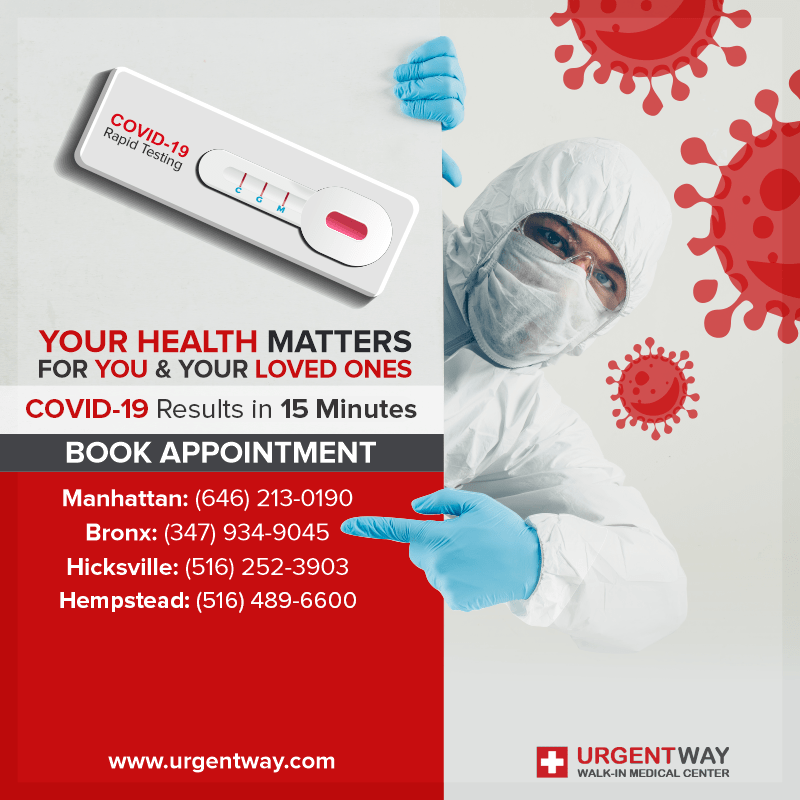The weather has changed and you are feeling lousy, lethargic, and drowsy. Or you have sprained your ankle while playing outdoors or want your blood test. Where would you go, whether urgent care center or primary care center?
It’s always hard for people to determine where to go. But not anymore because in this post we will discuss in detail the differences between primary care and urgent care.
Let’s get started.
What is Urgent Care?
Urgent care centers are a convenient option for those who are seeking immediate treatment for non-threatening emergencies. Especially, during the weekends or late hours, you might not be able to get an appointment.
However, in the case of the urgent care center, you can walk in anytime during the opening hours. With easy access and a convenient location near your area, you will get timely treatment. Moreover, one of the benefits of visiting urgent care is that they are open during late hours and on weekends and some of them are open on Sundays as well.
What Treatments Do You Get at Urgent Care Center?
Urgent care centers are equipped with high-end medical equipment along with certified physicians and nurses. Some of the treatments offered at urgent care centers are:
Strep Throat: In medical terminology, strep throat refers to inflammation of the throat mainly caused by bacterial infection. Strep throat also called streptococcal pharyngitis that causes swelling in mucus membrane and tonsils. You might feel an itchy, swollen, or sore sensation in the throat.
Birth Control: Birth control pills are also sometimes called oral contraceptives. The pills have been studied for over fifty years and were approved by the FDA for contraceptive use in 1960. Birth control pills have become popular since then and are a convenient way of birth control.
Flu Symptoms: Influenza which is known as flu is a respiratory infection caused by a series of viruses. Symptoms include a sore throat, headache, fatigue, congestion, and coughing.
Cold Symptoms: It is caused by a viral infection of the upper respiratory tract. The symptoms include sneezing, sore throat, stuffy nose, headache, and sinus congestion.
Ear Infections: It is a common term for the condition called Acute Otitis Media. The cause of ear infection is either a virus or bacteria that occurs in the space behind the eardrum. The symptoms are increased pressure and discomfort in the ear.
You can also visit an urgent care center to have TB tests, lab tests, employee physicals, vaccinations, pediatric care, DOT screening, and Immigration Medical Exam.
Are Urgent Care Doctors Good?
The majority of people ask a question about a doctor’s proficiency working at Urgent Care Centers. In simple words, doctors at urgent care centers are certified physicians and can take care of patients as those primary care doctors.
What is Primary Care?
We have discussed how urgent care offers timely treatment without booking an appointment or waiting for long hours. On the contrary, primary care providers are your family doctors who are well aware of your medical history. They can treat colds, aches, and pain. Moreover, primary care doctors can also
- Offer to counsel
- Monitor your health against your lifestyle
- Offer treatment for most diseases except those that are rare or uncommon
The primary care physician is also meant to serve as a referral provider. For instance, if you need a cardiologist, your primary care doctor can refer you somewhere where you can get the treatment.
Primary care physician is important because they can offer continuity of care. No matter, what type of illness you are facing, a primary care doctor can serve as the main point of care. Whether you have an acute illness, or injury or need immediate care, primary care physician is a useful resource for your whole life.
When you are looking for treatment, the important thing to consider is where to go whether to go to an urgent care center or primary care physician. Visiting ER or urgent care center means that your medical record will not be localized. However, when it comes to primary care physicians, they have your record all in one place.
What Treatment can Primary Care Doctor Offer?
Primary care doctors can help to treat illness and give advice on how to stay healthy and fit. Primary care includes:
- Patient Education
- Counseling
- Diagnosis and treatment of chronic illnesses
- Diagnosis and treatment of acute illnesses
- Health and wellness promotion
- Disease prevention
How to Find the Best Primary Care Physician near Me?
Finding the best primary care physician near your area is not as difficult as it seems to be. You can simply log on to your insurers’ websites and find doctors. Moreover, you can also find the best primary care physician near your area by accessing local listings.
Urgent Care VS Primary Care: Which one is better?
Urgent care centers offer quality treatment for illnesses and injuries at an affordable cost. However, they can’t replace the role of primary care physicians. You have a strong relationship with your primary care physician and that can’t be ever replaced with urgent care providers.
Urgent Care can be an option, if you can’t book an appointment, your doctor is unavailable, or when you need medical treatment for not a life-threatening emergency.
Why Primary Care Provider Should be Your First Option?
Primary care physician is your family doctor and establishing a relationship with them is an ideal option, regardless of your age, medical history, or gender. In addition, as you visit a primary physician regularly and go through checkup from time to time, the doctor gets to know your medical history well and offer treatment accordingly.
Primary care physician is also good at treating chronic health illness, and recommend nutrition, mental health, and stress management. In fact, visiting your primary care doctor will not only help you stay healthy in the present as well as in the future.
About Author:
Dr. Faika Khan is a family medicine doctor and founder of UrgentWay in New York and is affiliated with NYU and Plainview Hospital. She received her medical degree from the New York College of Osteopathic Medicine and has been in practice for over 10 years.



